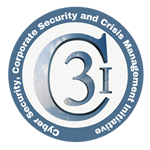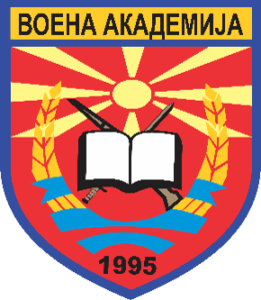ABOUT
ADVANCED TRAINING COURSE (ATC)
“STRENGTHENING SEE RESILIENT CYBER DEFENSE AGAINST HYBRID THREATS”
The Advanced Training Course (ATC) aims to raise awareness about the Alliance and SEE evolving complex threat environment and establish a foundation for long-term collaboration on a multidisciplinary level among the defence and security pundits and academia. The ATC will stimulate trainees to understand that hybrid base threats in general and via cyberspace do not only require new capabilities, but also new partners, new processes and, above all, new thinking. Hence, the ATC will serve as a first step in the creation of a SEE Network of defence security and academic experts on building resilience against hybrid warfare capabilities that can work across borders with other NATO and Partners’ experts and link state of the art of research and practice. During the ATC trainees from the SEE countries will learn how state and non-state actors acquire hybrid threats via cyberspace in achieving their strategic ends through five blocks.
The ATC (envisioned as a five-day training)
During the ATC trainees from the SEE countries will learn how state and non-state actors acquire hybrid threats via cyberspace in achieving their strategic ends through five blocks.
The first block of the ATC will introduce to SEE trainees the identified hybrid methods that are used to blur the lines between war and peace and attempt to sow doubt in the minds of targets. Trainees will learn why hybrid methods will be used in the future through enablers such as cyberspace and other emerging technologies. During this block experts will explain how NATO’s prepare, deter and defense strategy will help SEE governments in countering hybrid threats in general and via cyberspace in specific. Trainees will learn why countering hybrid threats via cyberspace requires strengthened coordination among international organizations, particularly between NATO and EU, involves partnership and intelligence, training and exercises, and actively countering propaganda with facts.
The second block will address hybrid threats via cyberspace posed by state actors. This block will address states’ methods of abusing cyberspace in combining military and non-military as well as covert and overt means including the propaganda during the deployment of irregular armed groups and use of regular forces. Special focus will be given to methods of disinformation, cyber-attacks, economic pressure caused by cyberspace activities, cyber diplomatic activities and methods of (ab)use of modern technologies in achieving strategic ends. During this block of the ATC trainees will learn about the mechanisms used by the state and non-state actors to develop the advanced hybrid threats as well as the latest efforts and best practices to counter hybrid based threats via cyberspace.
During Block – III, trainees will learn how non-state actors use hybrid methods via cyberspace. Experts will address terrorist radicalization, recruitment and propaganda via cyberspace. Trainees will be able to understand NATO and NATO Members’ best practices and cooperation in countering terrorists’ cyberspace activities as a means to an end in building a resilient cyber defense.
Block – IV of the ATC is dedicated to the regional experience. During this block, several case studies of hybrid threats based incidents that hit the region of SEE will be discussed. Trainees will be able to analyze and discuss how hybrid threats via cyberspace have affected some of the regional SEE countries, how these threats affected Euro-Atlantic values and what are the lessons identified (learned) by the regional SEE governments that can be instrumental in building resilient cyber defense capacities.
During the Block-V of the ATC experts will explain why multilateral and whole-of-government approaches are essential to addressing these multifaceted problems in general and for building resilient cyber defense in specific. Trainees will understand that resilience against hybrid threats via cyberspace relies not only on building capacities, but on the strength and ability of the society to deliver democracy, good governance, rule of law, and in addressing the needs of the citizens. The imperative for creating resilient security architectures and avoiding destabilization of the SEE countries is to continue to actively support the European and Euro – Atlantic integration of the countries from the region. The second part of this block will be dedicated to small project development. During this part trainees and experts will discuss the necessity of specific policies in SEE countries to build a resilient cyber defence against hybrid based threats. Trainees, representatives from SEE countries, will prepare and discuss policy recommendations for their respective governments about increasing cyber defense resilience to hybrid based threats.
AUDIENCE/TRAINEES
The trainees of the event will be military, civilian experts, young researchers in the field of social sciences (security, international relations, law, theology, sociology) and technical sciences from SEE. Speakers/experts come from regional countries Bulgaria, Canada, Croatia, Estonia, Germany, Montenegro, Macedonia, Italy, Serbia, Slovenia, Turkey, USA. Trainees will share their experience and academic expertise while providing a comprehensive and innovative approach to countering hybrid threats via cyberspace activities. Special emphasis will be given to issues such as understanding and preventing hybrid threats methods via cyberspace; why strengthened coordination among international organizations, particularly between NATO and EU; why it is important to strengthen partnership and intelligence, training and exercises, and actively countering propaganda with facts. Moreover, participants will get information on how state and non-state actors acquire hybrid threats via cyberspace. Trainees will understand why multilateral and whole-of-government approaches are essential to addressing these multifaceted problems in general and for building resilient cyber defense in specific. This understanding will provide, in the future, a common ground for cooperation in solving mutual problems.



